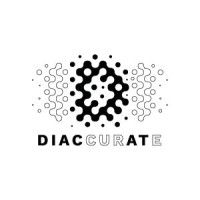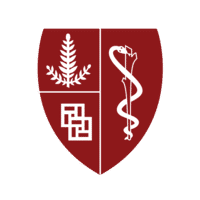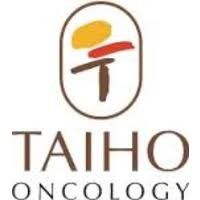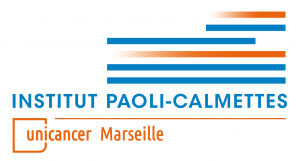预约演示
更新于:2025-05-07
p70 subfamily x Akt
更新于:2025-05-07
基本信息
相关靶点 |
关联
5
项与 p70 subfamily x Akt 相关的药物作用机制 Akt-1抑制剂 [+2] |
在研机构 |
原研机构 |
在研适应症 |
非在研适应症- |
最高研发阶段临床1期 |
首次获批国家/地区- |
首次获批日期1800-01-20 |
作用机制 Akt 抑制剂 [+3] |
最高研发阶段临床前 |
首次获批国家/地区- |
首次获批日期1800-01-20 |
作用机制 Akt 抑制剂 [+1] |
在研适应症 |
非在研适应症- |
最高研发阶段临床前 |
首次获批国家/地区- |
首次获批日期1800-01-20 |
6
项与 p70 subfamily x Akt 相关的临床试验NCT04586270
A Phase 1 Study of TAS0612 in Patients With Locally Advanced or Metastatic Solid Tumors
The purpose of this study is to see if TAS0612 is safe in participants with advanced or metastatic solid tumor cancer.
开始日期2020-10-15 |
申办/合作机构 |
NCT01980277
A Prospective, Multicentre, Uncontrolled, Phase Ib/II Study of LY2780301 in Combination With Weekly Paclitaxel in HER2-negative Metastatic or Locally Advanced Breast Cancer in Patients With and Without PI3/AKT/S6 Pathway Activation. - TAKTIC-IPC 2012-008
The overall rationale of this study evaluating tolerance and efficacy of LY2780301 in combination with paclitaxel in HER2-negative, inoperable locally advanced or metastatic breast cancer (MBC) is based on :
the medical need in this population with either hormonal-resistant or unsensitive and/or rapidly progressive disease
the preclinical evidences for involvement of PI3K/AKT pathway in tumor progression and drug resistance, including taxanes as well as its potential reversion by AKT inhibition
the high level of frequency of PI3K/AKT activation in HER2-negative MBC
the in vitro and in vivo preclinical activity of LY2780301, and its synergistic combination with various anticancer agents, including taxanes
the favourable profile of tolerance of LY2780301 in phase I trial
Weekly paclitaxel is conventionally administered at 80 mg/m²/week and is a standard treatment in breast cancer (BC) As described above, LY2780301 500 mg once daily has been established as the RP2D in phase I single agent trial.
Evidence of pharmacodynamic activity was noted at 400-500 mg QD. Conservatively, the first dose level to be explored will be LY2780301 400 mg QD and paclitaxel 70 mg/m²/week.
the medical need in this population with either hormonal-resistant or unsensitive and/or rapidly progressive disease
the preclinical evidences for involvement of PI3K/AKT pathway in tumor progression and drug resistance, including taxanes as well as its potential reversion by AKT inhibition
the high level of frequency of PI3K/AKT activation in HER2-negative MBC
the in vitro and in vivo preclinical activity of LY2780301, and its synergistic combination with various anticancer agents, including taxanes
the favourable profile of tolerance of LY2780301 in phase I trial
Weekly paclitaxel is conventionally administered at 80 mg/m²/week and is a standard treatment in breast cancer (BC) As described above, LY2780301 500 mg once daily has been established as the RP2D in phase I single agent trial.
Evidence of pharmacodynamic activity was noted at 400-500 mg QD. Conservatively, the first dose level to be explored will be LY2780301 400 mg QD and paclitaxel 70 mg/m²/week.
开始日期2014-01-01 |
100 项与 p70 subfamily x Akt 相关的临床结果
登录后查看更多信息
100 项与 p70 subfamily x Akt 相关的转化医学
登录后查看更多信息
0 项与 p70 subfamily x Akt 相关的专利(医药)
登录后查看更多信息
3,330
项与 p70 subfamily x Akt 相关的文献(医药)2025-07-01·Phytomedicine
Gouqi-derived Nanovesicles (GqDNVs) promoted MC3T3-E1 cells proliferation and improve fracture healing
Article
作者: Zhou, Xiaolei ; Liu, Liegang ; Nüssler, Andreas K ; Zhang, Zixuan ; Ma, Liang ; Peng, Zhao ; Xia, Hui ; Yang, Wei ; Meng, Zitong ; Xu, Shiyin ; Liao, Yuxiao
2025-06-01·Gene
Effect of glucose supplementation on protein biosynthesis in chickens reared under thermoneutral or heat stress environment
Article
作者: Sovi, Selorm ; Ariyo, Oluwatomide W ; Fuller, Alberta L ; Rekaya, Romdhane ; Hartono, Evan ; Milfort, Marie C ; Ghareeb, Ahmed F A ; Kwakye, Josephine ; Aggrey, Samuel E ; Aryal, Bikash
2025-06-01·Molecular and Cellular Endocrinology
N-acetylcysteine influence on PI3K/Akt/mTOR and sphingolipid pathways in rats with MASLD induced by HFD: a promising new therapeutic purpose
Article
作者: Michalak, Daniel ; Sztolsztener, Klaudia ; Chabowski, Adrian
11
项与 p70 subfamily x Akt 相关的新闻(医药)2025-04-19
·漫游药化
导读前几节我们介绍了RTKs(第一、二期)、MAPK通路(第三期),今天我们介绍另一个在RTKs下游、与MAPK平行的另一个重要通路—PI3K通路。01PI3K的组成与激活方式磷脂酰肌醇3-激酶(Phosphatidylinositide 3-kinases,PI3K)是一种胞内磷脂酰肌醇激酶,具有磷脂酰肌醇激酶活性的同时,也具有丝氨酸/苏氨酸(Ser/Thr)激酶活性。PI3K可分为3类,其中研究最广泛的为I类PI3K, 此类PI3K为异源二聚体,由一个调节亚基p85(由PIK3R1基因编码)和一个催化亚基p110(由PIK3CA基因编码)组成。催化亚基共有α、β、δ、γ四种类型,其中,α、β、δ类对应p85α, p85β或p55调节亚基;而γ类对应p101和p84/87调节亚基。调节亚基具有SH2结构域,能够识别RTKs的胞内激酶结构域(TK),并引发催化亚基p110的激活。图 1. PI3K的激活方式PI3K的激活方式一共有4种。如上图所示,当胰岛素家族生长因子激活相应的RTKs时,p85可以通过IRS1等接头蛋白(Adapter Protein)间接被接活(a);此外,其他家族生长因子及RTKs结合时,p85也可以直接识别TK结构域(b);上一期中我们提到的RAS蛋白在RAS-GTP的形式下,也可以直接活化PI3K 的催化亚基p110(c)。Raf和PI3K均可被RAS调节是MAPK通路与PI3K通路存在交叉的主要原因;此外,γ型PI3K催化亚基还可以被某些G蛋白偶联受体激活(d)。02P13K催化功能图 2. PI3K催化的反应PI3K激活后能够催化PIP2的3位羟基磷酸化生成PIP3,从而进一步促进下游通路;恰恰相反,细胞中另一种酶PTEN则能催化这个反应的逆过程,并对PI3K下游的通路产生抑制作用。PIP3生成后,可以充当第二信使,同时招募PDK1和AKT蛋白到质膜上,使PDK1磷酸化AKT蛋白的308号位的苏氨酸(T308),导致AKT部分活化。被活化的AKT将进一步激活下游调控通路。03PI3k-AKT 通路图 3. PI3K-AKT及下游蛋白AKT 是一类 AGC 家族的丝氨酸/苏氨酸激酶,主要包含3 个结构域:PH 结构域(对 PIP3 有亲和力,对与胞膜的结合至关重要)、催化结构域、调节结构域。AKT作为一种原癌基因,在多种细胞过程中发挥关键作用,如葡萄糖代谢,细胞凋亡,细胞增殖,转录和细胞迁移;PI3K/AKT 信号通路失调见于多种人类疾病,包括癌症、糖尿病、心血管疾病和神经疾病。 AKT下游作用的底物分类繁多,结合上图我们对主要的底物进行概述:1、TSC2TSC复合体(结节性硬化症复合体)包含三个亚基:TSC1,TSC2以及TBC1D7,能够负调控mTORC1复合体的活性,起到肿瘤抑制的作用。产生这种作用的主要原理是:TSC2包含的GTP酶活化蛋白(GTPase activating protein,简称GAP)结构域,将GTP形式的RHEB(RAS家族的一种小G蛋白)水解为GDP形式的RHEB,导致RHEB失活,不能激活mTORC1的激酶活性,从而抑制细胞生长。而AKT诱导TSC2蛋白(tuberin) 的939位Ser和 1462位Thr磷酸化后,活性抑制,导致mTOR通路反而被激活;2、BADBAD(Bcl2相关的细胞死亡激动剂)能够正向调节线粒体的凋亡,AKT磷酸化该蛋白后,BAD活性抑制;3、MDM2AKT能够通过磷酸化p53的泛素连接酶—MDM2而使其激活,从而抑制p53产生的细胞周期阻滞与凋亡。4、p21 和 p27 CDK抑制因子p21和p27是两个重要的细胞周期调节因子,在正常细胞 DNA受损伤时 , 被P53诱导产生,抑制DNA复制,增强DNA修复,起到抑癌作用。而AKT磷酸化抑制这些CDK抑制因子后能够抑制其活性。5、GSK3βGSK3β(糖原合成酶激酶3β)是一种在进化上非常保守的丝氨酸/苏氨酸激酶,参与肝糖代谢,在Wnt 通路中扮演重要的角色。正常情况下GSK3β可以磷酸化β-catenin使其经蛋白酶体降解, AKT磷酸化GSK3β后,导致GSK3β失活,不能再磷酸化β-catenin,致使β-Catenin在胞浆内大量聚集,从而进入细胞核并激活与细胞分裂和生长调控相关的基因(如c-myc和Cyclin D1等)。6、IKK ( IκB kinase )IKK ( IκB kinase ) 被AKT磷酸化激活,IKK 进一步磷酸化抑制能够抑制NF-kβ途径的转录因子IκB(注意断句....),最终结果是:AKT正向调控了NF-kβ途径,从而对细胞生存、增殖、侵袭、血管生成和化疗耐药产生影响。 7、WEE1 CDK1抑制激酶—WEE1能够被磷酸化抑制,对有丝分裂产生影响。8、ASK1ASK1 (凋亡信号调节激酶1)是一种能够激活JNK信号通路(MAPK通路的一种,详情见第二期)的MAPKKK,与凋亡诱导,促凋亡和内皮网应激(ERS)有关,AKT磷酸化ASK1后,导致其活性抑制。9、FOXOFOXO是一种凋亡诱导转录因子,AKT磷酸化FOXO后导致其在细胞内重新定位并失去转录活性。综上所述,我们可以看出:AKT所产生的效应最终结果大多引起细胞增殖及避免凋亡。04PI3K-AKT-mTOR 通路及TORC复合物前面我们已经说过了,AKT能够通过抑制TSC2,间接导致RHEB激活mTOR增强。mTOR全称叫做哺乳动物雷帕霉素靶点(mammalian target of rapamycin, mTOR)。mTOR是一类丝/苏氨酸激酶,C端与磷脂酰肌醇激酶(PI3K)催化域同源,但是却不具备酯酶激酶的活性,而具有Ser/Thr蛋白激酶活性。mTOR 能够形成两种复合物:TORC1和TORC2。图 4. PI3K-AKT-mTOR通路除了能被AKT激活外,mTOR还能根据细胞环境的能量与营养情况被激活或抑制。如上图所示,当能量不足(AMP/ATP 比例增高)、缺氧时, TSC2、TSC1形成复合体增强,抑制mTOR复合物形成。当溶酶体氨基酸过量时,H+-vATP酶能够激活带有鸟嘌呤核苷酸交换因子(GEFs)的蛋白复合物Ragulator,从而促进TORC1的形成。图 5. TORC1与TORC2前面已经提到,mTOR有两种复合物:mTORC1 和mTORC2。mTORC1 由 mTOR、mTOR 调节相关蛋白 Raptor、MLST8 和非核心组分 PRAS40、DEPTOR 组成。mTORC2 由 mTOR、mTOR 帕霉素不敏感伴侣 RICTOR、MLST8 和 mSIN1 组成。这两种复合物的主要区别就在于:结合蛋白是Raptor还是Rictor以及相关蛋白是PRAS40还是mSIN1。其中,前者的区别主要决定TORC1对雷帕霉素敏感,而TORC2对雷帕霉素不敏感;而后者的区别则在于:PRAS40是AKT的底物,而mSIN1是MAPK的底物。从功能上来说,TORC2功能较为简单,它能够磷酸化AKT从而对mTOR产生正反馈,促进mTOR进一步活化(与前面PDK1的部分活化呼应)。TORC1则不同,能够继续磷酸化下游多种底物,调控细胞生存、增殖、蛋白质合成、脂质生成、血管生成和自噬等生物过程。05TORC1 下游底物与效应图 6. TORC1下游底物及效应TORC1 与蛋白质合成真核起始因子4E(eIF4E) 是一种帽结合蛋白,可以特异性地识别mRNA的5'端的帽子结构,在真核翻译的起始过程中发挥重要作用。其阻遏蛋白4EBP1磷酸化缺失时,eIF4E 不能被释放出来用于招募核糖体用于激活翻译过程。mTOR通过磷酸化4EBP1,解除其对EIF4E的抑制作用,从而促进翻译和蛋白质的合成。TORC1还可以先磷酸化激活下游AGC家族核糖体S6激酶(S6K1),S6K1可以磷酸化激活核糖体S6蛋白(RPS6)、PDK1(AKT上游激动蛋白)、MDM2(p53抑制因子)、转录调节因子EEF2、接头蛋白IRS等,磷酸化抑制促凋亡蛋白BAD。最终的效应就是:避免细胞凋亡、促进蛋白质合成。TORC1 与脂质合成TORC1除了促进蛋白质合成外,还可以磷酸化激活STAT3 (信号转导与转录激活因子3)促进细胞增殖;激活SREBPs(固醇调节元件结合蛋白)和PPARα和γ(过氧化物酶体增殖物激活受体) 促进脂质合成。TORC1 与血管生成TORC1能够通过激活HIF1α促进血管生成,而HIF1α也可以间接地激活TSC2,从而对TORC产生负调控作用。TORC1与自噬TORC1通过磷酸化抑制下游底物ULK1等自噬相关蛋白,抑制自噬过程。综上所述,TORC1通过磷酸化激活/抑制一系列底物,直接/间接提高了蛋白质和脂质的合成、促进细胞增殖,引起细胞和组织的生长。06PI3K-AKT-mTOR 与肿瘤从上文我们可知,PI3K 通路可以通过多种途径避免细胞凋亡,促进其存活及增殖。PI3K/AKT信号通路在肿瘤发生中广泛的激活,尤其是PIK3CA,PIK3R1,PTEN,AKT等基因存在高频突变(其中PIK3CA基因在大约36%的乳腺癌中存在突变),与肿瘤发生、发展以及耐药密切相关。目前该通路的主要涉及的突变有:1、PIK3CA突变PIK3CA是肿瘤中编码 PI3K 蛋白 P110 亚基的基因,具有较高的突变比例。在前列腺癌、乳腺癌等多种癌症中,超过 10%以上的病例存在PIK3CA 突变。其中,激活型突变占80%以上。激活点突变可以让 PI3K 蛋白不依赖上游信号,而持续保持激活状态。PIK3CA 突变被认为是 EGFR-TKI 治疗产生耐药的潜在原因之一。2、PTEN突变前文我们提到, 抑癌基因PTEN能够产生与PI3K相反的效应,因此其突变也导致癌症发展。在子宫内膜癌、脑癌、皮肤癌和前列腺癌中, 10%以上的病例存在 PTEN 基因突变。3、AKT突变AKT基因家族包括:AKT1,AKT2,AKT3。AKT 在肿瘤中最常见的突变形式,是激活点突变和基因拷贝数异常增加。在乳腺癌、结直肠癌、卵巢癌和膀胱癌中,有相当高比例的病例。图 7. 针对PI3K-AKT-mTOR通路设计的药物如上图所示,目前针对PI3K、AKT以及mTORC靶点的药物研发均有一些进展。参考文献:[1] Robert, Jacques. Textbook of Cell Signalling in Cancer [M]. Springer International Publishing, 2015.[2] Wagener C , Stocking C , O. Müller. Cancer Signaling - From Molecular Biology to Targeted Therapy[M]. 2017.[3] Amanda H . Cancer cell signalling[M]. Wiley Blackwell, 2014.部分素材来源于网络,侵删。预告第五期:细胞因子通路;第六期:TGFβ通路;原创不易,欢迎发现“分享”和“点赞”
临床终止临床2期
2025-03-27
关注并星标CPHI制药在线
上文中(《褪黑素促进骨再生作用机制的研究进展(上)》),我们介绍了褪黑素促进骨再生作用的抗炎和抗氧化作用以及在成骨细胞分化和自噬的作用,本文继续介绍褪黑素与成骨细胞凋亡和铁死亡的关系以及对破骨细胞的作用机制和促进血管生成的作用。
③褪黑素与成骨细胞凋亡
研究表明,褪黑素对成骨细胞凋亡的影响具有两面性,且与褪黑素浓度密切相关。实验发现使用高糖培养成骨细胞48h后细胞的凋亡率为40.8%,凋亡蛋白cleaved caspase 3的表达升高,而加入褪黑素后细胞凋亡率为28.3%,cleaved caspase 3的表达降低。这与另外两项研究实验结果相似,褪黑素干预后成骨细胞早期凋亡率、总死亡率以及Bax、caspase-3等凋亡相关蛋白的表达明显降低。研究表明,褪黑素可以缓解并改善成骨细胞的凋亡水平,进一步分析发现其与抑制成骨细胞氧化应激密切相关。褪黑素干预后可使枸橼酸铁铵和铝作用成骨细胞造成ROS蓄积的结果得到缓解,使 ROS水平降低。研究表明褪黑素可使核因子红细胞2相关因子2(Nrf2)途径相关蛋白Nrf-2及HO-1表达进一步的增加。Nrf-2是人抗氧化反应元件(ARE)的正向调节因子,Nrf-2通路的激活可以调节细胞内大量抗氧化基因产物的表达水平,并降低氧化应激水平,从而使凋亡水平降低,说明褪黑素抑制成骨细胞的凋亡水平,可能与通过Nrf-2途径抑制成骨细胞的氧化应激水平有关。
另有研究表明使用高浓度褪黑素干预成骨细胞,介导内质网应激(ERS)、调节STIM1,导致Septin4、Septin7表达增加以及细胞膜钙升高,成骨细胞过量表达Septin4,可使细胞骨架破坏、细胞形态改变和细胞数量减少。这可能与细胞膜钙升高,通过ERK途径诱导成骨细胞都会使成骨细胞的凋亡明显增加有关。
④褪黑素与成骨细胞铁死亡
铁死亡是一种铁依赖性的细胞死亡方式,是由于细胞内脂质过氧化、谷胱甘肽过氧化物酶4(GPX4)抗氧化系统失调以及铁超负荷所致,主要特征是细胞内活性氧的堆积和线粒体形态、膜电位的改变。多项研究表明,褪黑素对成骨细胞的铁死亡具有抑制作用,且此作用与褪黑素改善成骨细胞氧化应激以及铁自噬密切相关。
首先,褪黑素通过调节Nrf2/HO-1、Wnt以及PI3K/AKT/GSK-3β/P70S6k信号通路使成骨细胞氧化应激水平降低,从而抑制铁死亡。研究表明褪黑素可以使高糖诱导成骨细胞发生铁死亡导致的GPX4和胱氨酸⁃谷氨酸逆向转运蛋白(SLC7A11)表达下调得到逆转,从而抑制成骨细胞的铁死亡。同时研究人员检测核因子红细胞2相关因子2(Nrf2)和血红素加氧酶⁃1(HO-1)的表达水平,结果显示在褪黑素组中的表达水平明显高于高糖组,而在使用Nrf2⁃SiRNA干扰后,褪黑素对成骨细胞铁死亡的改善作用则受到明显抑制,这说明其中Nrf2/HO-1通路起着重要作用。值得注意的是,实验发现铁剂量依赖性下调Wnt靶基因以及PI3K/AKT/GSK-3β/P70S6k 信号通路相关基因的转录与表达,抑制其信号传导,生成ROS和脂质过氧化产物(LPO)。在使用褪黑素后可逆转铁抑制的典型 Wnt及PI3K/AKT/GSK-3β /P70S6k 信号转导,减少ROS和LPO的产生,改善氧化应激,预防铁死亡,恢复铁死亡对成骨细胞分化的抑制作用。
其次,褪黑素可以调节miR-550a-3p/ELAVL1轴,改善铁自噬来抑制成骨细胞的铁死亡。ELAV样蛋白1 (ELAVL1) 是一种RNA结合蛋白,能够介导铁自噬,使铁蛋白降解,氧化应激水平升高,从而引起铁死亡。 通过双荧光素酶检测发现miR-550a-3p能够靶向作用于ELAVL1,褪黑素干预高糖培养成骨细胞后miR-550a-3p表达上调,调控ELAVL1表达下调,减少铁自噬的发生,从而使铁死亡得到抑制。根据上述实验结果可知,褪黑素显著降低成骨细胞的铁死亡水平是通过激活 Nrf2/HO-1通路、恢复Wnt及PI3K/AKT/GSK-3β/P70S6k信号通路传导、上调miR-550a-3p,降低ELAVL1相关铁自噬蛋白的表达实现的。
3、褪黑素对破骨细胞的作用机制
骨再生的控制不仅需要成骨细胞的调节,还需要破骨细胞的参与。破骨细胞源于造血干细胞,核因子κB 受体活化因子配体/核因子κB 受体活化因子(receptor actvator of nuclear factor-κBligand/receptor actvator of nuclear factor-κB,RANKL/RANK)通路的活化诱导破骨细胞的形成。骨保护素是基质细胞产生的诱饵受体,与 RANKL 结合并阻止其与 RANK 的相互作用。同时,巨噬细胞集落刺激因子促进破骨细胞前体的增殖和破骨细胞的存活。
褪黑素减少与骨吸收增加有关,提示褪黑素可能是一种内源性破骨细胞抑制剂。血清中的低褪黑素水平与骨质疏松症患者的低骨密度也表现出相关性。通过抑制 MT2 受体依赖的核因子κB信号通路促进间充质干细胞的成骨分化,并由 RANKL旁分泌下调破骨细胞的生成,表明褪黑素可能通过骨保护素/RANKL/RANK 轴影响成骨细胞系细胞和破骨细胞系细胞之间的相互作用。另有研究报道是褪黑素下调核因子κB 信号通路和活化 T 细胞核因子c-1 (NFATc1) 转录因子直接抑制破骨细胞的分化,而不涉及褪黑素受体。此外,褪黑素还上调骨细胞分泌降钙素发挥对破骨细胞的抑制作用。在细胞水平上,褪黑素抑制 RAW 264.7 细胞在低浓度RANKL 和巨噬细胞集落刺激因子诱导下分化为破骨细胞。
4、褪黑素具有促进血管生成的作用
骨修复需要血液供应和血运重建来恢复受损区域,血管化是骨再生的前提和关键环节。褪黑素促进血管生成的机制是通过上调血管内皮生长因子水平促进骨髓间充质干细胞介导的血管生成,即促进骨生成-血管生成偶联。将骨髓间充质干细胞经褪黑素处理,在得到具有更高表达水平的成骨相关标志物的同时,也得到更高表达水平的血管生成相关标志物,如血管内皮生长因子、血管生成素2和血管生成素4。褪黑素纳米复合支架的成功制备,实现了褪黑素的长效缓释和成骨能力的增强。将褪黑素包埋丝素电纺丝 (melatonin-encapsuled silk Fibronin electrospun,SF@MT) 纳米纤维植入大鼠临界尺寸的颅骨缺损中,通过激活 PI3K/Akt信号通路,可显著促进骨基质沉积和新血管形成。负载褪黑素的纳米纤维海绵支架 (Scaffold@MT) 的植入也显著改善了大鼠股骨远端缺损的血管化骨再生。通过核因子红系2 相关因子 2(nuclear factor-erythroid 2-Related Factor 2,Nrf2)/血红素加氧酶1(heme oxygenase,HO-1) 信号通路,褪黑素纳米复合支架可减少血管内皮细胞的氧化应激损伤以及直接刺激血管内皮生长因子的产生,从而逆转糖尿病条件下骨生成-血管生成的解偶联并促进成骨。相关的骨组织工程的进展进一步证实褪黑素具有改善缺血组织血管生成的潜力,进而加速骨修复。不过,也有研究指出,在肿瘤、年龄相关性眼病和低氧环境中,褪黑素抑制组织内新血管生成,这与骨愈合过程中的观察结果相矛盾。
参考资料
[1]王颖,郝楠,谢戬芳.褪黑素在骨关节炎中作用机制的研究进展[J].安徽医学,2024,45(06):794-797.
[2]季明意,季欣意,徐俊峰.褪黑素促进骨再生机制及在口腔种植中的应用[J].中国组织工程研究,2025,29(18):3868-3876.
[3]李富华,张锦玉.褪黑素对成骨细胞作用机制的研究进展[J].中国骨质疏松杂志,2024,30(11):1678-1682.
作者简介:小泥沙,食品科技工作者,食品科学硕士,现就职于国内某大型药物研发公司,从事营养食品的开发与研究。
END
2025金笔奖征文活动开启,来投稿吧!
领取CPHI & PMEC China 2025展会门票
智药研习社直播预告
来源:CPHI制药在线
声明:本文仅代表作者观点,并不代表制药在线立场。本网站内容仅出于传递更多信息之目的。如需转载,请务必注明文章来源和作者。
投稿邮箱:Kelly.Xiao@imsinoexpo.com
▼更多制药资讯,请关注CPHI制药在线▼
点击阅读原文,进入智药研习社~
临床结果申请上市
2024-12-10
·药时代
扫码报名2024肝病新药联盟年会暨减重新药论坛!
胶质母细胞瘤(Glioblastoma, GBM)是成人中最具侵袭性的原发性恶性脑肿瘤,其治疗方法主要包括手术、放疗,靶向治疗,免疫治疗和干细胞治疗等。由于GBM存在高度的异质性,通常有低的突变负担,并且其肿瘤微环境固有的免疫抑制性,使得传统的化疗和免疫疗法难以发挥预期效果。mTOR是雷帕霉素靶蛋白,其通过PI3K-AKT-mTOR信号通路或通过影响胶质母细胞瘤微环境在胶质母细胞瘤的发展中起着至关重要的作用。GSPT1作为调控蛋白翻译终止的关键蛋白,在胶质母细胞瘤中高度表达,并通过特定机制促进胶质母细胞瘤的进展。有研究表明,mTOR抑制剂耐药原因之一可能是由于GSK3β表达量降低引起,而GSPT1的降解会促使GSK3β的表达上调,有望克服其耐药。与此同时,mTOR的抑制能有效增强GSPT1降解剂活性,并且mTOR抑制和GSPT1降解在细胞翻译的始末具有协同作用。基于此,研究人员提出了一种利用分子胶技术将小分子抑制剂和分子胶降解剂特性整合到单一分子中的新策略。
首先,通过结合多种mTOR抑制剂和E3泛素连接酶配体,结合分子胶的特点,研究人员选择刚性短的连接体构建双功能化合物库,通过多轮筛选,筛选出YB-2-43,它对胶质母细胞瘤细胞的增殖具有抑制作用。通过进一步的结构优化,最终获得mTOR抑制和GSPT1降解活性更好的双功能化合物YB-3-17。同时使用MLN0128(mTOR抑制剂)和SJ6986(GSPT1降解剂)治疗U87细胞,发现其抗肿瘤活性虽有提高,但仍逊于YB-3-17,这表明YB-3-17在同时干扰两个靶点时存在显著协同作用。
基于torkinib与mTOR的共晶结构(PDB:4JT5),研究人员使用mTOR对YB-3−17和MLN0128进行了分子动力学模拟,对接结果表明YB-3-17能够有效适应mTOR的激酶口袋,其琥珀酰亚胺环中的羰基基团与mTOR的LYS2306形成了强烈的氢键相互作用,这可能增强了其抑制活性。MMGBSA分析显示,YB-3-17与mTOR的亲和力较低,表明与MLN0128相比,YB-3−17是一个更稳定的配合物。此外,使用CRBN-CC885GSPT1的共晶结构(PDB:SHXB),预测了YB-3-17的分子胶结合模式。
将YB-3-17中的谷氨酰胺进行乙基化以得到YB-3-17-NEG,作为阴性对照组;其丧失了与CRBN的结合,并且降低对GSPT1的降解活性,但保留了较强的对下游mTOR磷酸化的抑制。经免疫共沉淀实验显示,在YB-3-17处理下,Flag-CRBN HeLa细胞中的GSPT1蛋白与mTOR相比显著富集,而MLN0128和阴性对照分子YB-3-17-NEG则没有达到这种效果,这些结果突出表明YB-3−17独特的作用机制,其选择性地增强GSPT1在目标细胞环境中的积累,并诱导CRBN和GSPT1之间形成紧密的次级复合体。
研究人员对YB-3-17进行了进一步的生物学活性评估以及机制验证。YB-3-17以浓度和时间依赖性的方式显著抑制了U87细胞中S6K,4EBP1以及AKT蛋白的磷酸化水平,表明其抑制mTORC1/2复合物活性的能力。YB-3−17处理细胞6h可以观察到GSPT1明显降解。随后,研究发现,YB-3-17诱导的GSPT1降解可以被蛋白酶体抑制剂(卡非佐米、硼替佐米)、类泛素化抑制剂(MLN4924、MLN7243)和泊马度胺阻断,但不会被MLN0128阻断,这表明GSPT1的降解依赖于蛋白酶体系统而不是与mTOR的结合。
这表明了YB-3-17通过蛋白酶体途径作用于GSPT1的特异性。激酶活性测定表明,YB-3-17的ICs0为0.22nM,优于mTOR抑制剂MLN0128。在生物学活性评估中,YB-3-17还展现出了对多种神经肿瘤细胞的增殖抑制作用,显著优于单靶点mTOR抑制剂、GSPT1降解剂以及它们的联合治疗。这一结果充分展示了YB-3-17通过双靶点协同作用所带来的治疗优势。相比单一靶点药物,YB-3-17能够同时作用于mTOR和GSPT1,可以更有效的抑制肿瘤细胞增殖。
进一步,通过蛋白质组学和激酶谱实验评估YB-3-17的降解选择性和激酶抑制选择性,以此来评估其安全性。蛋白质组学分析显示,YB-3−17处理后GSPT1,GSPT2和SNUPN均有下调,但通过western blotting验证表明,YB-3−17并没有诱导GSPT2和SNUPN这两种蛋白的降解,这表明YB-3−17只显著降解GSPT1,而不影响其他细胞内蛋白,展现极好的降解选择性。同时,激酶谱实验显示,不同于MLN0128,YB-3−17不抑制对细胞生长至关重要的FGR、CSF1R (FMS)、LCK和LYNa等脱靶蛋白,进一步证实,YB-3-17在抑制mTOR活性时具有显著的选择性,未对多种常见的细胞生长相关激酶产生抑制作用。同时,在对小鼠进行的为期三天的连续给药研究中,MLN0128单次30 mg/kg剂量会导致小鼠死亡,而接受等量YB-3−17治疗的小鼠在整个研究期间保持良好的健康状况。这些数据表明,YB-3−17降低了脱靶效应的毒性,同时通过降解GSPT1和抑制mTOR增强了疗效。
通过RNA测序分析,作者进一步探索YB-3-17的作用机制。KEGG分析显示,YB-3−17显著富集了与多种途径相关的基因,包括氨基酸合成、内质网蛋白质加工和胰岛素抵抗信号。这种广泛的活性表明YB-3-17对细胞过程的多方面影响。且通过火山图分析,YB-3-17处理后SENS2、DDIT4和CHAC1在mRNA水平上的显著上调,这些基因能够显著增强对mTOR的抑制活性。同时,YB-3−17还显示出大量富集与细胞凋亡(DDIT3)和p53信号通路(GADD45A)相关的基因。以上数据表明,YB-3-17通过影响更广泛的信号通路发挥抗肿瘤效应。
在体内实验中,通过将U87细胞接种到雄裸鼠中建立了异种移植模型,随后,通过腹腔注射对小鼠进行治疗。与对照组相比,MLN0128和YB-3−17均能显著抑制肿瘤生长。然而,在相同剂量下,YB-3−17表现出更好的疗效。在10/20 mg/kg剂量下,YB-3−17几乎完全停止肿瘤生长,导致肿瘤消退,表明其体内抗肿瘤能力更强。并且,相比于MLN0128,不同剂量的YB-3-17处理小鼠后,小鼠状态良好。进一步在体内验证了YB-3−17抑制mTOR和降解GSPT1的能力。通过免疫印迹法分析腹腔注射指定剂量的YB-3−17,MLN0128后,裸鼠肿瘤细胞中GSPT1、cyclin D1、pS6K、pAKT和β-actin的变化,进一步证实了YB-3-17显著抑制mTOR下游蛋白的磷酸化,并以剂量依赖性方式降解GSPT1。
综上,本研究提出了在一个小分子中同时实现mTOR抑制和GSPT1降解的双靶双机制小分子设计策略,通过多轮筛选以及结构优化,设计开发出小分子YB-3-17,其表现出优于mTOR抑制剂MLN0128的肿瘤抑制活性、选择性和安全性。该化合物验证了双靶点、双机制策略的可行性,为抗肿瘤药物开发提供了新的治疗思路。
参考文献
Yongbo Liu, Xiuyun Sun, Qianlong Liu, Chi Han, Yu Rao. A Dual-Target and Dual-Mechanism Design Strategy by Combining Inhibition and Degradation Together. J Am Chem Soc. 2024 Dec 2. doi: 10.1021/jacs.4c11930
封面图来源:pixabay
《生物安全法案》再遇挫,药明系周一开盘大涨!
2024-12-09
Acta Pharmacol Sin| 上海药物所评测AlphaFold3的GPCR-配体复合物预测表现能力显示实验结构的必要性
2024-12-08
里程碑!乙肝治愈率首次突破30%大关
2024-12-07
版权声明/免责声明
本文为授权转载文章。
本文仅作信息交流之目的,不提供任何商用、医用、投资用建议。
文中图片、视频、字体、音乐等素材或为药时代购买的授权正版作品,或来自微信公共图片库,或取自公司官网/网络,部分素材根据CC0协议使用,版权归拥有者,药时代尽力注明来源。
如有任何问题,请与我们联系。
衷心感谢!
药时代官方网站:www.drugtimes.cn
联系方式:
电话:13651980212
微信:27674131
邮箱:contact@drugtimes.cn
点击,报名参加肝病会议!
免疫疗法细胞疗法
分析
对领域进行一次全面的分析。
登录
或

Eureka LS:
全新生物医药AI Agent 覆盖科研全链路,让突破性发现快人一步
立即开始免费试用!
智慧芽新药情报库是智慧芽专为生命科学人士构建的基于AI的创新药情报平台,助您全方位提升您的研发与决策效率。
立即开始数据试用!
智慧芽新药库数据也通过智慧芽数据服务平台,以API或者数据包形式对外开放,助您更加充分利用智慧芽新药情报信息。
生物序列数据库
生物药研发创新
免费使用
化学结构数据库
小分子化药研发创新
免费使用




